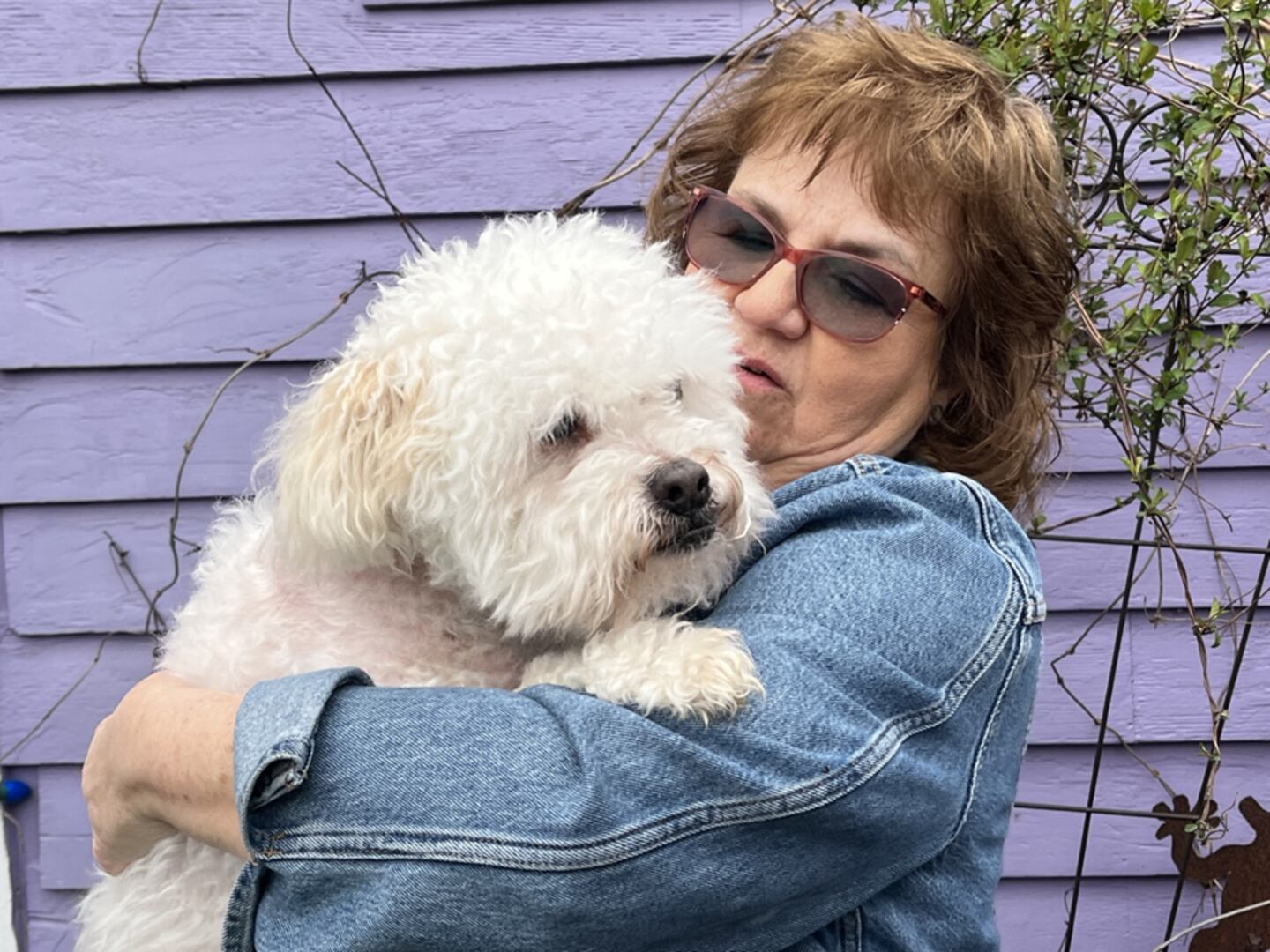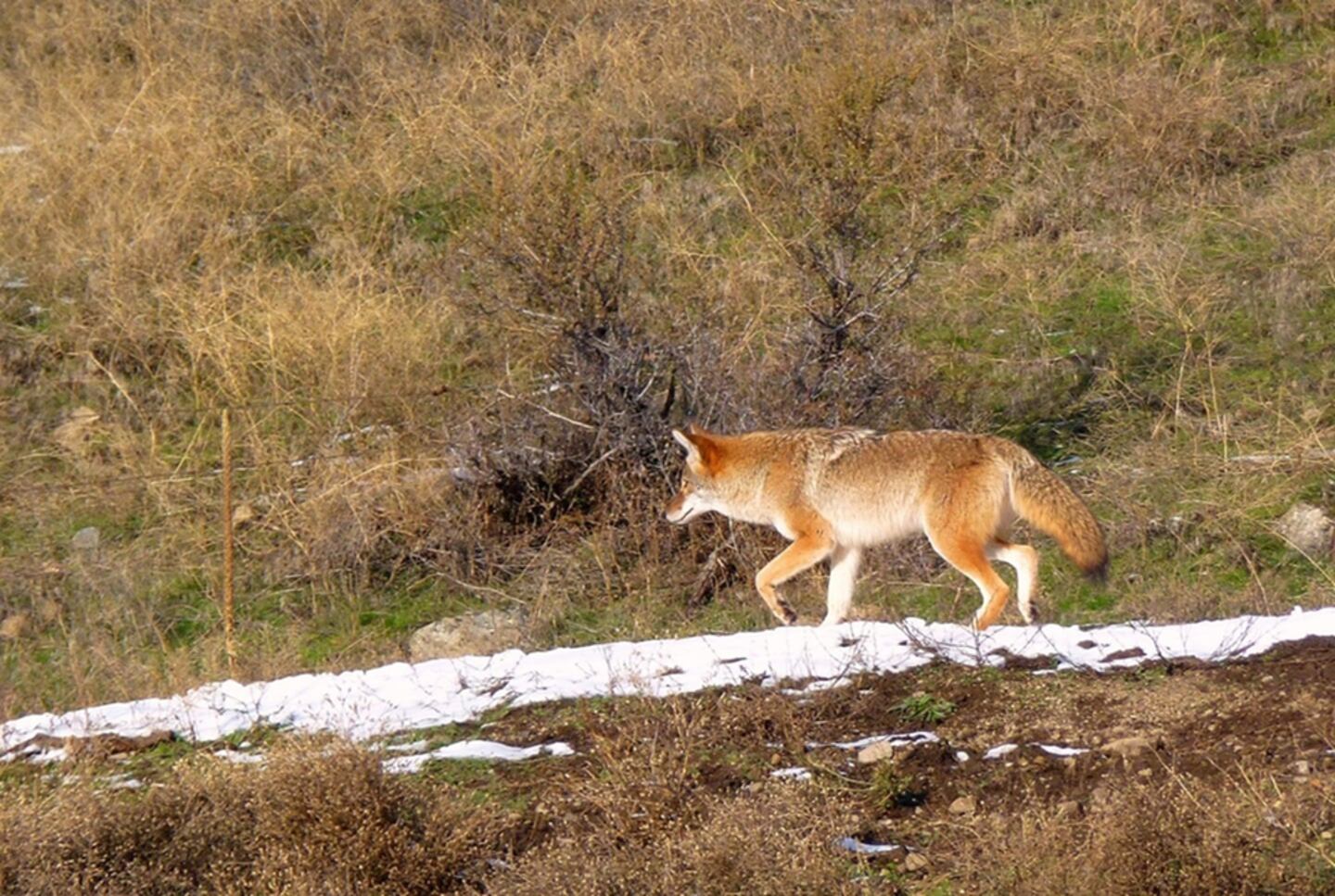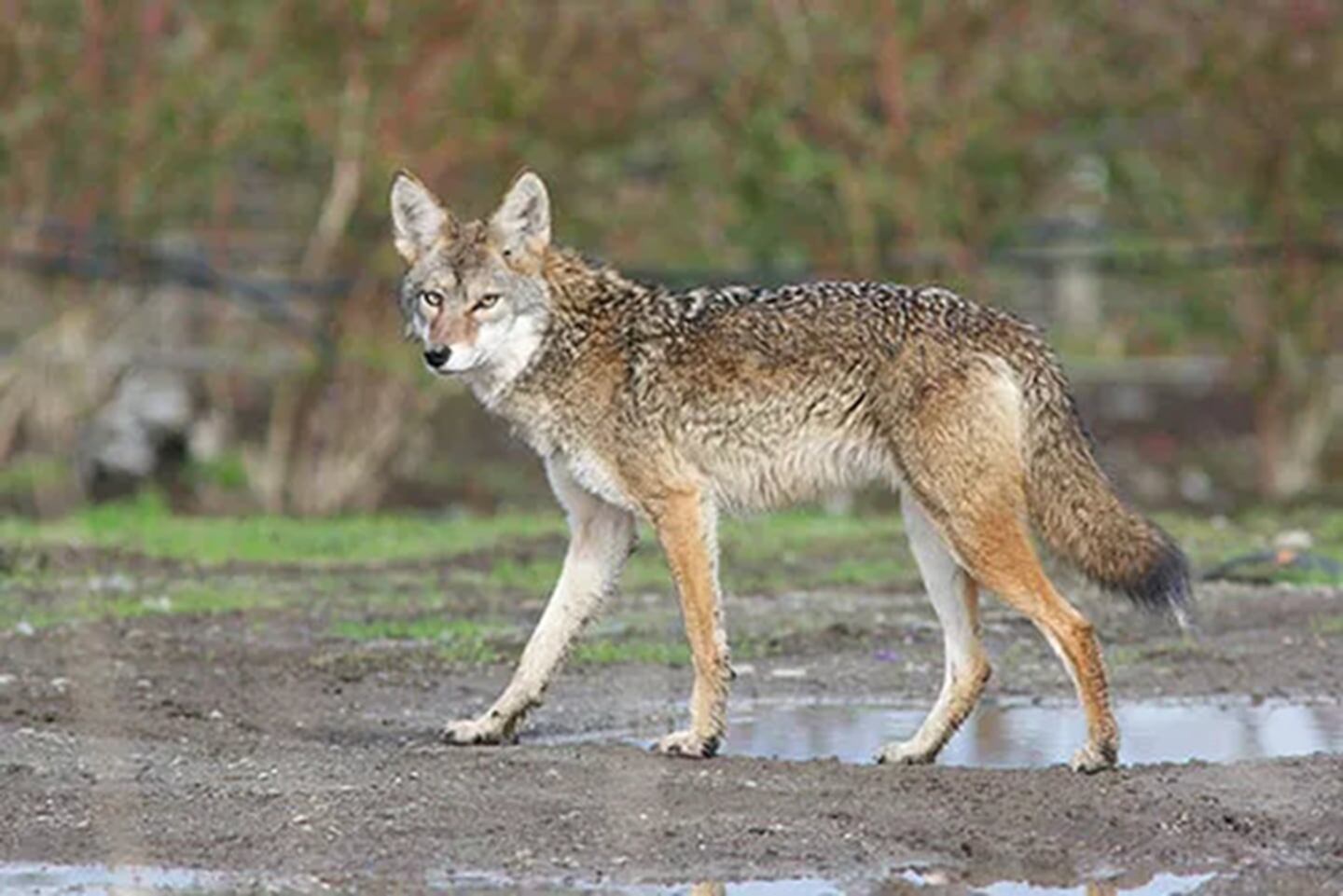A Seattle woman warned other pet owners after she said a coyote had attacked her dog in her backyard.
KIRO 7 News spoke with Christie White, who said the coyote attacked her 15-year-old dog, Suki, on Thursday, February 8, around 2:30 a.m.
“From inside the house, I could hear him screaming,” she said.
White rushed outside to find her dog walking in circles near her front door.
“I started noticing the blood running down his neck. Totally freaked out,” she shared.
The coyote left four puncture wounds around Suki’s throat, she told KIRO 7 News.
“I felt terrified. If the teeth had been a little bit somewhere else, he would have been gone,” she said. “You think it’s not going to happen to you. well I thought I have a small backyard surrounded by houses. Oh no, he’s fine. Then this coyote. They’re just so bold now.”
White had rushed her dog to the emergency room, where a veterinarian performed surgery.
Thankfully Suki is recovering, however, White is still shocked about how the attack happened.
“I was totally surprised it would come in this small of a backyard and surrounded by houses,” she said. “I thought they were supposed to be afraid of us. But to me, this shows they’re not afraid.”
White’s backyard is surrounded by fences and is located in a dense neighborhood.
“I thought he (coyote) was extremely bold for coming in my backyard,” she said.
White said she has seen a number of coyotes roaming the streets over the years, however, she never expected to see one in her own backyard.
Now White, along with other neighbors, is being more cautious.
“He never goes out alone, even the day time. I’m just not willing to even take a chance,” she said.
“We’re definitely checking now when we go out. At night time, we have lights so we can see. Yeah, just being mindful they can be in the backyard,” said Dustin King, a neighbor.
King and his wife own a young Labrador. While she is larger than Suki, King said he’s not taking any chances.
“Just being mindful of it. Making sure our back gates are closed, things are secure for the dogs. We try to minimize a coyote coming in.” He added, “She’s just a sweetheart. And I wouldn’t want to put her in a situation like that.”
White and others are now urging pet owners to always be cautious when taking their pets outside, especially at night.
“Don’t let your dog out on its own - especially at night. Just don’t even take the chance because it can happen. It can happen to you. It happened to me and my dog,” said White.
WASHINGTON STATE DEPARTMENT OF FISH AND WILDLIFE:
KIRO 7 spoke with the Washington State Department of Fish and Wildlife to learn more about coyotes and how pet owners can protect their beloved friends.
An official said coyotes are not native to western Washington.
The agency said coyotes live across nearly all of Washington, from the shrub steppe to the alpine, as well as many urban and suburban areas. However, they are commonly found in wooded green spaces and parks within cities, including Seattle and Spokane.
Coyotes are most active at night and during the early morning and evening hours, the agency said.
The animal eats a diverse range of food, including rabbits, small rodents, garbage, birdseed, fruit, moles, etc.
However, when people feed the coyotes -- which is strongly discouraged -- coyotes quickly lose their natural fear of humans and can become aggressive.
If people encounter a coyote, they’re encouraged not to run away from it but rather stand tall, stare into their eyes, and shout at it.
“You also can throw something at it,” the agency said. “Make loud noises, wave sticks, squirt it with a hose, or otherwise ‘haze’ the coyote if it approaches. This ‘humane hazing’ can help re-establish the coyote’s natural fear of people.”
However, coyotes may not be as easily scared during the months from February through July as it’s considered “pup season.”
Coyotes will fiercely defend their dens. If coyotes do not respond to “hazing,” and appear increasingly agitated, the agency recommends people to calmly walk away from the coyote, without turning their backs to it, and maintain eye contact with the animal.
The agency also encourages homeowners to have a “5-foot woven-wire fence with extenders facing outward at the top of each post should prevent coyotes from climbing over.”
It also recommends people bury fencing at least 8 inches deep as coyotes can easily dig underneath fences.
For more details on how to protect your loved ones and pets, please click here.
©2024 Cox Media Group











